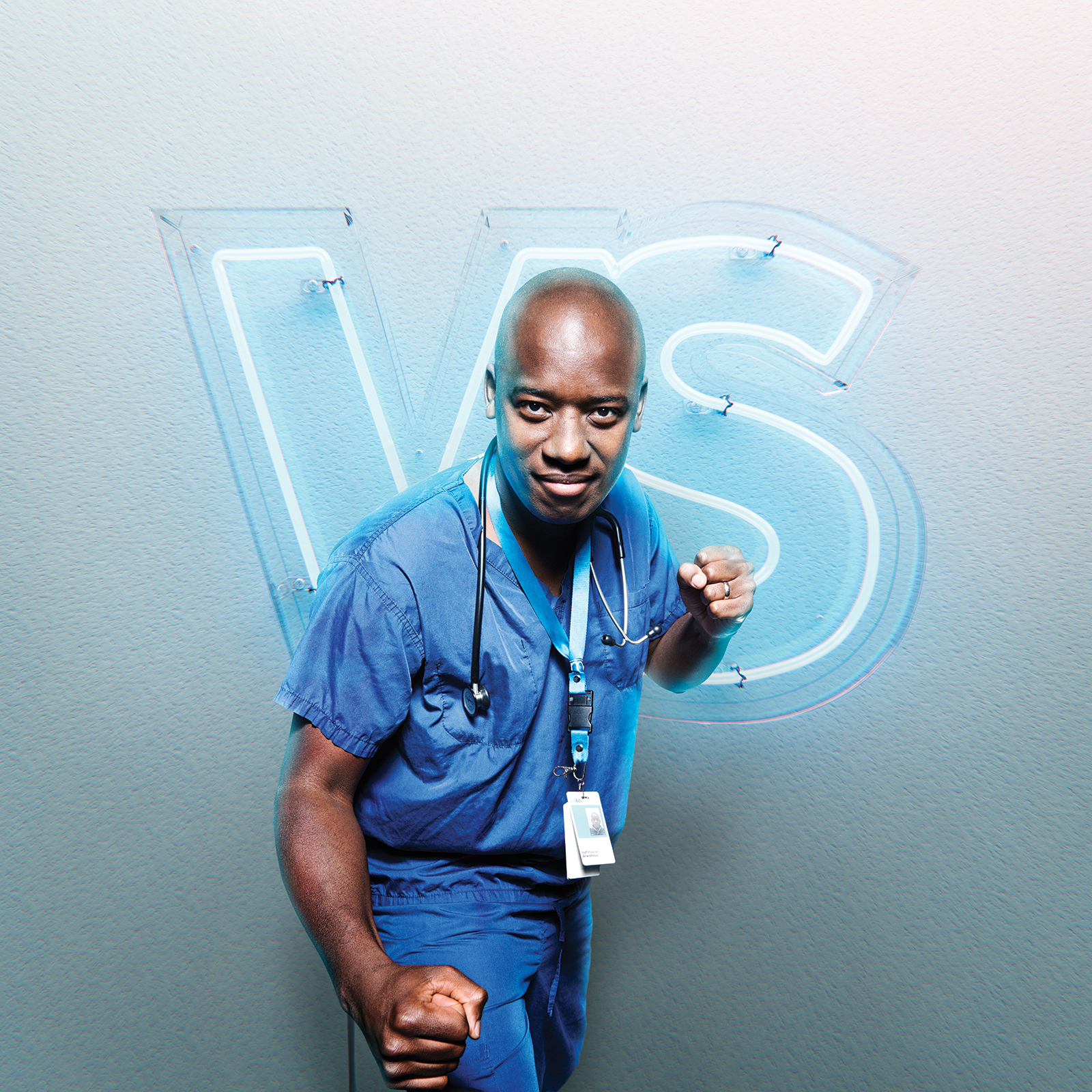SickKids Scientists Strike Back: Understanding COVID-19, and Slowing its Spread amongst Hospital Staff
Much remains mysterious about COVID-19, but we know that its impact on people is highly variable. For some, it’s relatively mild, akin to a cold or flu. For others, it’s severe, even deadly. What Dr. Upton Allen wants to know is why.
Early reports suggest high risk amongst the elderly and those with chronic medical conditions, but Dr. Allen, the Head of Infectious Diseases at SickKids, is trying to dig deeper.

Pictured: Dr. Clyde Matava
In a proposed research study with centres in Canada, Hong Kong, Japan, Singapore, and Thailand, Dr. Allen wants to see if there are DNA alterations which predispose people to contracting COVID-19 and making the illness more severe. To do this, his research team will sequence the genetic code of every adult and child participating. They’ll also study people who have previously recovered from SARS, as well as those who were exposed to SARS and COVID-19, but never got sick.
"It is important that we all pull together to tackle this viral illness, which is arguably the most severe challenge that the world has faced since the second World War" - Dr. Upton Allen
With this, Dr. Allen hopes to learn more about the genetic markers associated with an increased risk of severe COVID-19 illness. Using that knowledge, we can better define at-risk patients and develop new, targeted approaches to treatment.
The results of the study might also inform future research, including vaccine development. That’s because improved understanding of genetic markers associated with severe forms of COVID-19 illness can help identify important molecules and pathways within the immune system.
“It is important that we all pull together to tackle this viral illness, which is arguably the most severe challenge that the world has faced since the second World War,” says Dr. Allen. “We have assembled an amazing team of several talented individuals who will help us to successfully address our research goals.”
While Dr. Upton Allen and his team are working to better understand the virus, SickKids scientist and anesthesiologist Dr. Clyde Matava is trying to find ways to slow its spread amongst hospital staff now.
“Certainly in my field, in anesthesia, we will be looking after people with COVID-19,” says Dr. Matava. “So how do you further enhance the protection of the environment?”
When it comes to COVID-19 patients, one of the biggest risks for hospital staff is aerosol-generating procedures like airway management that can disperse the virus in the air.
For instance, nasal cannula, which pump in oxygen through the nose, can increase aerosolization, furthering the spread of the virus. But, in an experiment he recently posted to Twitter and is under review for publication, Dr. Matava used black-lit simulation mannequins to show how a simple face mask placed over the nasal cannula can help contain the spread.
“That’s very helpful because a lot of people will need oxygen,” explains Dr. Matava.
In another recent experiment, also posted to Twitter, he showed how clear drapes reduce droplet spray during intubation.
“When a drape is used, the spray is pretty much restricted to under the drape,” Dr. Matava says. “So they’ll be less chance of the healthcare providers getting infected.”


